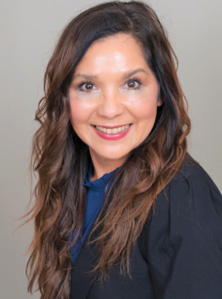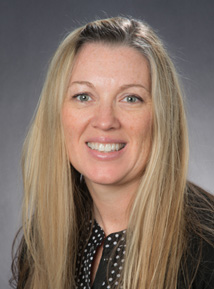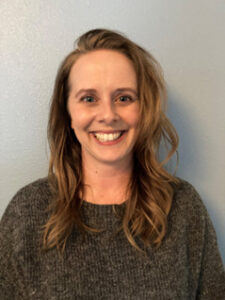Workforce
Quality Leaders Training
In many organizations, newly minted quality leaders are picked for their technical prowess and interpersonal skills. They are assigned responsibility for addressing quality programming and metrics and may need additional support to be successful in their new roles. Quality Essentials 101 is intended to help these new leaders thrive.
Over 10 weeks, this virtual program brings together quality leaders and subject matter experts to form and share the foundational elements of quality improvement in the healthcare setting. Participants will learn key concepts to promote quality in their organizations and will be provided the skills and support to apply this knowledge to the specific needs and goals within their own organization. Participants will also have the opportunity to engage in group discussion and network with peers.
The Quality Essentials 101 program is designed to support new & emerging quality leaders in healthcare organizations. Participants will engage in a virtual program that combines subject matter expertise with collaborative learning. The program aims to equip quality leaders with the foundational elements of quality improvement specific to the healthcare setting, enabling them to promote quality and drive positive change within their organizations. Participants will learn key concepts, engage in group discussions, and network with peers, providing them with the necessary skills and support to succeed in their roles.
We encourage new and emerging quality leaders, infection control, resident providers, executives, and clinical leaders to join.
Each session will include an in-depth presentation of each topic, breakout sessions and/or activities. Full program schedule will be provided to registrants closer to the start date.
Session 1: Intro & Leading a Just Culture of Safety
- Describe the role of a leader in a culture of safety and identify foundational skills for creating psychological safety.
- Explain just culture as it applies to healthcare quality improvement.
- Practice applying just culture principles to healthcare scenarios.
Session 2: Survey Readiness: What Do I Need to Be Looking For?
- Verbalize Top Ticket item areas of focus for recent surveyors
- Summarize components of a complete Corrective Action Plan for submission to a regulatory body
- Describe the steps of the Model for Improvement: PDSA Cycle
Session 3: Policy and Protocols: A Guide to Promote Consistency, Reduce Mistakes, and Keep Staff and Patients Safe
- Define difference between policy, procedure, and protocol documents within manual
- Explain the importance of minimizing duplications, maintaining timeliness, and reducing absolute language within documents as it pertains to legal and regulatory implications for facilities.
- Describe 80/20 rule when writing policy/protocols and why less is more
Session 4: Data: From Numbers to Action
- Apply basic statistical formulas to healthcare quality data
- Explain the 5 methods of data collection
- Apply the three principles of data visualization.
Session 5: TeamSTEPPS
- Provide an overview of the TeamSTEPPS Essential Framework and evidence-based set of teamwork tools.
- Teach effective communication strategies and techniques to improve information exchange among healthcare professionals.
- Train participants in situational awareness to identify, mitigate potential harm and/or errors.
- Share implementation examples of TeamSTEPPS measurement tools and concepts.
Session 6: Lean: Principles, Core Concepts and Tools
- Learn the background of Lean methodology, including the purpose, benefit, and history.
- Define core principles of lean.
- Identify sources of waste and concept in lean thinking.
- Explain 5S Fundamentals, the purpose and relationship to lean.
- Explain the 5S standards and how to implement %S in the workplace.
Session 7: Value-based Program and Hospital Finance
- Overview of CMS programs that reward hospitals for quality of care provided to patients with Medicare benefits.
- Compare the timelines and key players across a diverse set of programs.
- Explore how payment and value-based purchasing fit into the larger hospital financial model.
Session 8: Unveiling Human Factors: Strengthening Communication and Resolution Programs, and Root Cause Analysis
- Learn the scientific discipline of human factors as it relates to the physical and mental characteristics of individuals in an organizational culture.
- Know how system redesign can influence work environment, processes, and human behavior.
- Learn essential commitments, elements and steps of an effective and reliable Communication and Resolution Program.
- Recognize how CRP core components drive clinical quality improvement, enhance patient safety, and facilitate patient-centered accountability.
- Outline the 6 Ps of a root cause analysis
- Verbalize situations in which a root cause would be appropriate to evaluate for identifying the causal factors underlying variations in performance
Session 9: Health Disparities and Cultural Competence
- Summarize “population health” as it relates to designing and monitoring quality of healthcare.
- Provide examples of health disparities experienced by historically marginalized people.
- Apply concepts of cultural humility to healthcare interactions.
Session 10: Social Drivers and Community Health Improvement
- Explain how social drivers and health-related social needs affect patient ability to achieve optimal health outcomes.
- Describe opportunities to improve screening and addressing patient social needs.
- Compare approaches for partnering and investing in programs to improve community health.
March 19 – May 21, 2024
9:00 – 11:00 AM PT every Tuesday
Instructor-led sessions via Zoom
$1,975 per person
Program fee includes course materials and certificate of completion.
Continuing Education Credit Hours (CECH) and/or ACHE credits will be awarded to interested participants.
A digital Certificate of Completion will be awarded to participants upon successful completion of the program. Successful completion of the program will be based on attendance of virtual sessions.
 Amy Anderson, MN, BSN, CNS
Amy Anderson, MN, BSN, CNS
Director, Safety and Quality
Amy has over 23 years’ experience in healthcare as a Registered Nurse including the past 13 years as an Advanced Practice Nurse and Clinical Nurse Specialist (CNS). She obtained her Master of Nursing with a focus as a Perinatal Clinical Nurse Specialist from the University of Washington School of Nursing in Seattle and her Bachelor of Science in Nursing from the University of Washington School of Nursing in Bothell. Amy’s wide range of skills include developing and implementing evidence-based policies and procedures, lecturing, developing training curricula, and providing expert testimony as a nurse witness for legal review of cases. Additionally, Amy was trained as a CORE surveyor for Joint Commission International (JCI) and served as an escort/scribe, with expertise in Joint Commission and Department of Health Surveys.
 Abby Berube, MPH, CPHQ
Abby Berube, MPH, CPHQ
Director of Health Equity, Safety and Quality
Abby has over a decade of experience working with academic medical institutions, community health centers, hospitals and payers to address health disparities. As part of the Northwest Safety & Quality Partnership, she designed and led a Health Equity Collaborative involving 30 hospital and health system teams across Washington and Oregon. She participates in Bree Collaborative statewide initiatives to provide guidance on screening and addressing patient social drivers of health and is committed to helping health systems dismantle systemic racism and authentically partner with communities they serve.
 Serena Chai, MPH, LSSGB
Serena Chai, MPH, LSSGB
Data Analytics Manager
Serena is a trained epidemiologist and population health strategist with decades of experience supporting some of the top payers across the country. During the pandemic, she helped bring remote patient tracking and monitor products to market. She is currently leading WSHA’s analytic team and adds her patient satisfaction and data strategist to promotes team transparency and continual improvement. She thrives in an ambiguous environment and is passionate about mentoring others with her certifications in PMP, Six Sigma & SAS.
 Albert Froling, MHA
Albert Froling, MHA
Technical Product Director
Albert is an Afghanistan Combat Veteran turned Healthcare Data Expert with 10 years of healthcare experience. He has broad healthcare system level experience starting out as an Administrative Fellow at MultiCare Health System, Supply Chain Analytics Manager, and Technical Product Manager at WSHA. Additional credentials include Tableau Professional Certification.
 Rosemary Mitchell Grant, BSN, RN, CPHQ, CPPS
Rosemary Mitchell Grant, BSN, RN, CPHQ, CPPS
Director, Safety and Quality
Rosemary Mitchell Grant is a Director of Safety and Quality with a sepsis and readmission management focus at the Washington State Hospital Association. She has a Bachelor of Science in Psychology and Nursing from the University of Washington. Prior to joining WSHA, Rosemary was the Sepsis Coordinator at Harborview Medical Center and also worked at the Harborview Injury Prevention Research Center (HIPRC) where she helped to develop a care pathway for hospitalized children with severe traumatic brain injuries. Before joining Harborview, Rosemary spent 12
years working on research and quality improvement projects in the Department of Surgery at the University of Washington Medical Center and the Surgical Outcomes Research Center.
 Tina Seery, MHA, BSN, RN, CPHQ, CPPS, LSSBB, SANE
Tina Seery, MHA, BSN, RN, CPHQ, CPPS, LSSBB, SANE
Senior Director, Safety and Quality
Tina is a registered nurse with a master’s degree in healthcare administration, is a Certified Professional in Healthcare Quality, a Certified Professional in Patient Safety, a Lean Six Sigma Black Belt, Certified Lean Sensei, a Team STEPPS Master Trainer, and a trained sexual assault nurse examiner. Her clinical and operational leadership experience in emergency, clinical care and quality management spans multiple service areas over the last 28 years. She is positioned to sit for the Board of Governor’s Exam, American College of Healthcare Executives, Fellowship Credential (FACHE), in 2023. Tina is an active and engaged clinical partner supporting hospitals in our state with several key patient safety initiatives: Opioid Stewardship, in-hospital quality, Emergency Department Utilization, statewide Stroke & Cardiac Care) and serves as a trusted liaison for Lean/Six Sigma, Team STEPPs, health care clinical quality expertise, including health policy-related, legislative initiatives. She also supports state and federal partners in WSHA’s COVID-19 Response Team. Tina greatly enjoys time with family, playing tennis, golf, hiking, boating, and loving on her Great Danes. She is also actively engaged in several volunteer roles including actively participating in the WA State Chapter of ACHE as a Board Director, Appointment on the Regional Advisory Council, Chair of the Membership Committee, Chair of the Women in Healthcare Executive Network, DEI Committee Member. In 2022, she was a recipient of the American College of Healthcare Executives Regent’s Award. As a first-generation Latina college graduate, Tina remains a strong advocate for educational advancement. She supports emerging healthcare professionals in our state as a Mentor with her alma mater, the University of Washington eMHA and MHA Programs and supports the Washington State Opportunity Scholar Program. She remains an active WA State Emergency Volunteer Professional and supported several Covid-19 Mass Vaccination Clinics in 2021-2022.
 Jessica Symank, RN, MPH, CPHQ
Jessica Symank, RN, MPH, CPHQ
Senior Director, Patient Safety and Quality Partnerships
Jessica has been in the healthcare industry for 26 years, leading safety and quality work for over 10 years at the local and state level. She has a background in Emergency and Critical Care nursing and is certified in the Virginia Mason Production System through Virginia Mason Franciscan Health where she worked for 14 years. Jessica has led numerous quality improvement initiatives at WSHA, including building a regional safety and quality program for the state of Oregon, building and leading workplace violence programming and infection prevention and control. Her passion is supporting rural healthcare and ensuring hospital members at all levels have the tools they need to succeed.
 Brittany Weiner, MS, LMFT
Brittany Weiner, MS, LMFT
Assistant Director, Behavioral Health
Brittany provides education and technical assistance on behavioral health program implementation and quality improvement projects. Her work includes implementation of distribution of medications for opioid use disorder, topical webinars related to behavioral health conditions, and developing resources for mental health advance directives in hospital settings. She is an experienced behavioral health leader who served in various community health settings before joining WSHA.